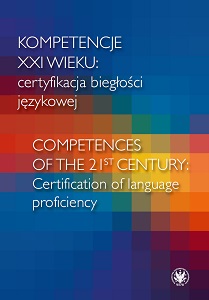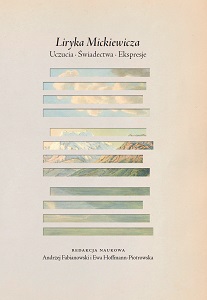![Romantyzm, melancholia, wykluczenie. Zuzanna Ginczanka i *** [Non omnis moriar…]](/api/image/getbookcoverimage?id=document_cover-page-image_875353.jpg)
Romantyzm, melancholia, wykluczenie. Zuzanna Ginczanka i *** [Non omnis moriar…]
The book is a successful attempt to renew research on the literature of war and occupation conducted so far, and at the same time to present the phenomenon of the underground University of Warsaw and its educational, academic, and cultural activity in particular with regard to literary studies. The authors describe the profiles of young artists for whom the ideas of Romanticism were a constant point of reference in their writing and in the armed combat against the occupier.
More...

